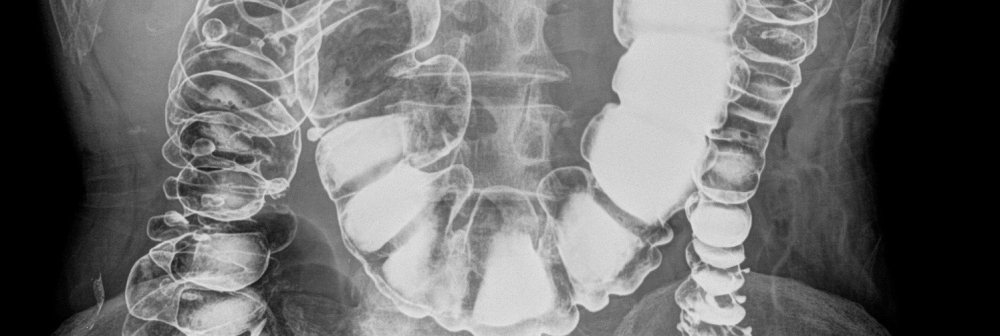Fluoroscopy
Fluoroscopy can be used to examine the digestive tract, the kidneys and bladder, joints, and to perform minor operative procedures such as intravenous line insertions.

Accredited service
This service is accredited by the Diagnostic Imaging Accreditation Scheme (DIAS).
Find out more about DIASPatient information
Commonly asked questions about fluoroscopy
A fluoroscopy unit uses x-rays and an Image Intensifier to produce ‘real time’ 2D images, similar to a movie. Often, a contrast agent (barium or iodine based) is used make different body parts more visible.
Fluoroscopy can be used to examine the digestive tract, the kidneys and bladder, joints, and to perform minor operative procedures such as intravenous line insertions.
You can find contact hours and phone numbers on our Radiology Department page.
At The Alfred Radiology we offer a wide range of diagnostic and interventional fluoroscopic procedures, including:
- Swallowing
- Stomach (Meal)
- Small bowel follow through
- Ileostomy studies
- Enema
- Defaecating proctogram
- Retrograde pyelogram
- Urethrogram
- Intravenous pyelogram
- Intrathecal Chemotherapy administration
- Sialogram
- T-tube Cholangiogram
- PICC line insertion
- Joint Injection
Yes, we require a referral from your GP or specialist doctor in order to make an appointment.
Most fluoroscopy procedures will require some preparation such as fasting or bowel preparation. You will be advised how to prepare when your appointment is made.
Please tell us if you are pregnant or if you are have had a previous allergy to contrast medium or iodine.
A radiologist and a radiographer will perform this examination. Sometime a nurse will also assist.
Fluoroscopy examinations can take from 10 minutes to several hours, depending on the complexity of each case. Your radiographer will advise you of the expected time on the day.
Often, fluoroscopy examinations involve the administration of a contrast agent (barium or iodine based). The radiographer and radiologist will inform you of your requirements on the day
The radiologist will direct you during the examination. You may be asked to lie or stand in different positions to aid the imaging process
You can eat and drink normally after the examination, unless otherwise directed.
You will be given an information sheet at discharge about your procedure.
The radiologist’s report and your images are automatically forwarded to your referring doctor, and you will need to make an appointment with them to discuss the examination results.
